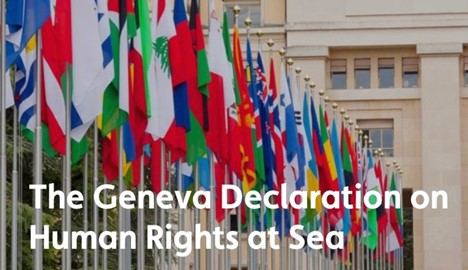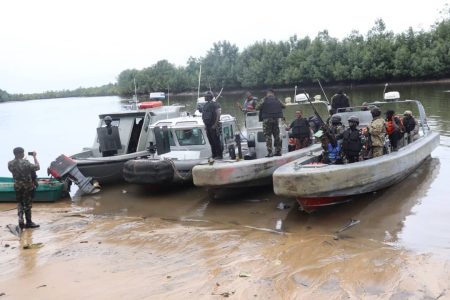 Lagos — The Geneva Declaration on Human Rights at Sea has been launched to define and defend the human rights of the global maritime population and those crossing the world’s oceans and seas.
Lagos — The Geneva Declaration on Human Rights at Sea has been launched to define and defend the human rights of the global maritime population and those crossing the world’s oceans and seas.
Developed by UK-based NGO Human Rights at Sea (HRAS), the declaration targets human rights abuses stemming from piracy, criminal violence, breaches of maritime labour rights, seafarer abandonment, slavery, trafficking, child labour, and failures in equality and inclusion.
The launch follows three years of research and drafting by a team of experts in public, international, humanitarian, and refugee law. The declaration applies to seafarers, fishers, workers in offshore oil and gas, and the tourism industry and extends to passengers, scientists, state officials on naval and coast guard vessels, migrants and refugees, and people involved in unlawful activities.
Given the challenging and underregulated nature of the global maritime environment, abuse of human rights at sea is inadequately reported, enforced, or remedied. People continue to disappear, die, and be assaulted at sea.
“We estimate that there are around 30m men, women and children at sea at any time. All have human rights. Sadly, they are out of sight and out of mind as far as most people are concerned. Far too often, their human rights are breached or wantonly abused. Those responsible for the ill-treatment of vulnerable people at sea far too frequently act with impunity. This declaration is aimed at protecting the vulnerable and ending the impunity of those doing the abusing,” drafting team member Professor Steven Haines said.
HRAS asserts that if these abuses were occurring on land, they would be publicised and addressed. However, in the maritime environment, those with the authority and responsibility to intervene frequently turn a blind eye.
The declaration is structured around the understanding that the protection of human rights at sea rests on four fundamental principles: Human rights at sea are universal – they apply at sea, as they do on land; all persons at sea, without any distinction, are entitled to their human rights; there are no maritime specific reasons for denying human rights at sea; all human rights established under both treaty and customary international law must be respected at sea.
There are no new obligations contained in the declaration. No states are being asked to take on new responsibilities. The Geneva Declaration on Human Rights at Sea promotes compliance with human rights at sea by providing port states, coastal states, and flag states with guidance to help expand human rights protections and support the vision to end abuse.
The declaration contains practical guidance to states on how they can meet the obligations that they have under already existing international human rights law. For example, flag states are obligated to ensure compliance with human rights onboard. The declaration provides guidance on how this should happen on the high seas and when in territorial waters.
The overlap of the human rights obligations of flag states, port states, and coastal states are addressed in the declaration, with cooperation between these parties being encouraged.
The guidelines in the declaration note it is good practice for port states to monitor flag states’ compliance with human rights onboard their vessels and take necessary steps to ensure an effective remedy for those individuals whose rights may be breached.
The declaration encourages coastal states to monitor flag states’ compliance with human rights onboard while those vessels are present within internal waters and to ensure its own domestic legislation is extended to its territorial waters to better protect human rights at sea.
The declaration has been peer-reviewed law firms Norton Rose Fulbright, HFW, DLA Piper and Reed Smith.
“This is the first time that the human rights of all people at sea have been codified in one document. For far too long, the sea has been a space where those who want to abuse the human rights of people are allowed to do so freely and without consequence,” said HRAS CEO David Hammond.
*Splash
Follow us on twitter



